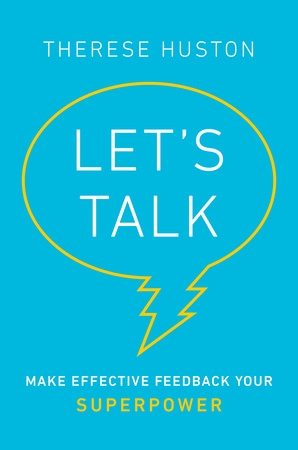‘He’s like Tony Stark and she’s like my mom’: How workplace praise diverges between men and women
For starters, women were more likely than men to receive vague feedback. Take bland, all-encompassing praise such as “You were a real asset to the team,” or “You had a great year”: 57% of these generic comments went to women, while 43% went to men. These lukewarm compliments seem innocuous enough. But men’s compliments weren’t so lukewarm.
Managers were more likely to call men “game changers,” “innovative,” and “visionary.”Managers were also more likely to point out how their male employees used their skills to achieve a major business or product outcome. Whereas she’s being told she “had a great year,” he’s being told that his “ability to make technical terms accessible and appealing to the customer brought in three major contracts.” When the researchers tallied how often specific business outcomes like these were mentioned, 60% of them appeared in men’s reviews, while only 40% appeared in women’s. It doesn’t feel as though we’re being more specific with men, yet, inadvertently, we are.
These aren’t huge differences, but they are troubling. Reading through their performance reviews, you have a more concrete picture of Samuel’s impact than of Sarah’s. Who is likely to get a raise, the person “who brought in three major contracts” or “the real asset?”
One way to reduce gender bias praise is to identify three product or business outcomes for every employee. Aim to do it once a quarter so that you don’t lose track of what each person is contributing.
In my interviews, it’s not only formal praise that’s vague; off-the- cuff praise is too. I interviewed an assistant to a theater producer, Lana. Her manager would pass her backstage and say, “Good job,” barely pivoting from his clipboard or headset. Lana would think, “I’ve done fifty things today, and the thing that you’re looking at now is what?” When you’re offering appreciation, be specific. If you can name what that person did and why it mattered, it might take you an extra minute, but it moves the recipient into learning mode. Give people a chance to impress you again.
When “helpful” isn’t that helpful
Are women receiving any strong, consistent messages? They are. Women are praised when they fulfill traditional stereotypes about women, specifically when they make other people comfortable. When adults are asked to pick those words that best describe women from a list of adjectives, they highlight “warm,””friendly,” “organized,” and “sensitive.” Basically, people describe the kind of mom they’d want picking them up after a hard day at school. Ask adults to select the words that best describe men, and it sounds like they’re describing Tony Stark from the Avengers:”athletic,” “has business sense,” “assertive,” and “decisive.” Whether it’s conscious or not, we want women to take care, but we want men to take charge.
Don’t fall into the all-too-common pattern of praising women as helpers and men as leaders. Women are probably labeled “helpful” because research shows they are more apt to pitch in on office housework, often called “unpromotable work,” because,let’s face it, no one gets promoted for ordering cake. Women are more likely than men to do the tedious work of writing reports, reserving conference rooms, serving on committees, and planning office parties. Women end up with these tasks more often in part because they’re more likely to volunteer for them, reports Linda Babcock, an organizational psychologist at Carnegie Mellon University.
But it’s not just that women’s hands shoot up when it’s party-planning time.Managers also ask women to do these kinds of unrewarded office chores 44% more often than they ask men. Sadly, female managers ask women just as often as male managers. And women feel more pressure to say yes. Whereas men only say yes to 51% of these requests, women say yes 76% of the time. These chores still need to be done; they just don’t need to be done by women. One simple way to balance the workload is to create a list of these chores and rotate who orders lunch and reserves rooms. Last, we saw in chapter 1 that feedback works best when employees can ask for what they need most, whether that’s coaching, evaluation, or appreciation. Appreciation, however, is the hardest feedback to ask for. I’ve met many people, especially women, who’ve been vaguely told, “Keep doing what you’re doing.”
It feels needy or pushy or plain awkward to ask for more details, so they go back to their desks perplexed. It doesn’t feel right to ask your boss, “Could you say three things you specifically like about me?”
So make it easier to ask for appreciation. Start a team meeting by saying, “I just read that only 24% of employees feel they receive enough praise at work. That means that only one out of four people hear the kind of praise they need to stay motivated. On this team, I want to make it four out of four. I’m going to make a concerted effort to recognize each person’s strengths in our one-on-ones, but if you ever feel like you need more praise, remind me of that statistic. Say you want to be part of the magical twenty-four percent. With a little nudging, I can do better.”

From LET’S TALK: Make Effective Feedback Your Superpower by Therese Huston, published by Portfolio, an imprint of Penguin Publishing Group, a division of Penguin Random House,LLC. Copyright © 2021 by Therese Huston.
Therese Huston is the founding director of the Center for Excellence in Teaching and Learning at Seattle University, and she has written for The New York Times and the Harvard Business Review. She received her Master’s and PhD in cognitive psychology from Carnegie Mellon University. Huston is the author of Teaching What You Don’t Know and How Women Decide. Her third book LET’S TALK: Make Effective Feedback Your Superpower releases January 26, 2021.
(14)



